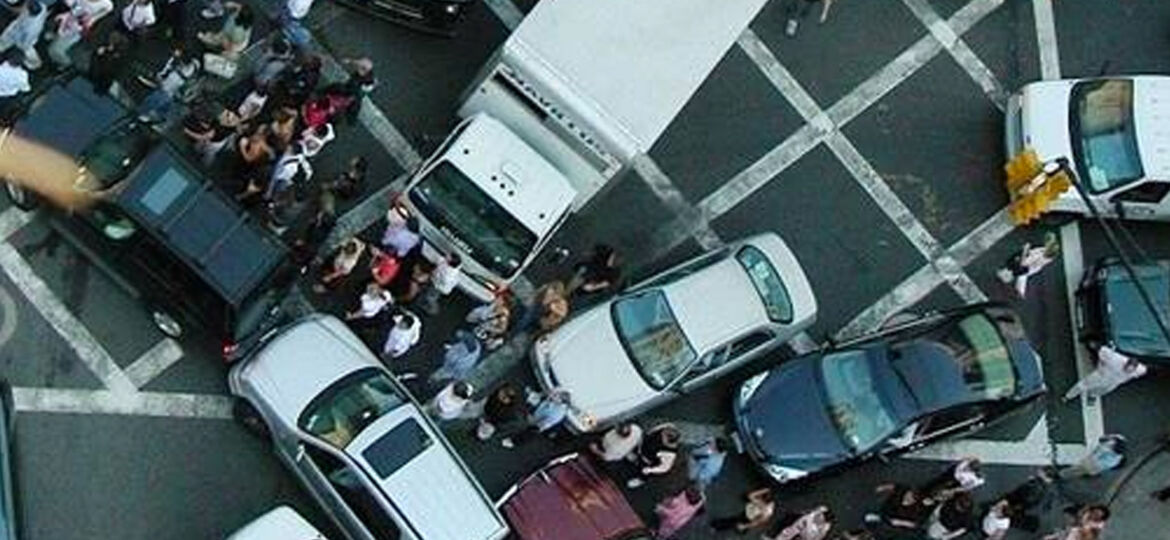
WHY THIS MATTERS IN BRIEF
Roads around the world are filling up with cars and lorries and now Switzerland is thinking about moving lorries, vans and delivery carts underground.
Everyone wants to get away from rush hour traffic, especially if you’re stuck behind a truck, even if it’s an autonomous truck, but after a certain point, traffic problems can’t be solved by simply building more roads because they’ll just generate more traffic – that is unless you start charging to use them that is.
Switzerland, for example, where the volume of road traffic directly related to the transport of goods is expected to increase by 45 percent over the next 15 years, lacks the infrastructure to handle that growth, so instead they’re looking for new and creative solutions.
One alternative that’s being considered by the Swiss government is building more railways, but now they’re also considering a novel, and even more expensive, solution – a $3.4 billion underground cargo tube full of automated delivery carts.
Last week, Cargo Sous Terrain presented a feasibility study to the Swiss government proposing its “cargo sous terrain,” or “underground cargo” vision. Their plan is to dig a 67km, 6m wide tunnel 50 meters below ground that would connect Zurich with key logistics centers out to the west and south of Bern, and, arguably, if it could be tied into something like a fully autonomous fulfilment network, like the one Amazon could build, then it could be an interesting concept.
Initially a pilot tunnel would connect to four above ground way stations that link the tunnel to a series of cargo transfer points and the eventual goal would see the network expanded to include other towns such as Lucerne and eventually Geneva.
The tunnel itself, which would run on renewable energy, would contain three lanes for autonomous, electrically powered autonomous delivery “pods” which would speed along at 30 km/h, and above them there would be a separate monorail system that whisks smaller packages around at 60 km/h.
The vision also aims to replace big trucks with smaller, but more numerous, autonomous vehicles, such as vans, cars and drones, that deliver things more frequently in urban areas. For example, rather than getting one big delivery at the beginning of the day, businesses could receive a constant stream of goods, ending the blight of trucks in cities once and for all.
At the moment it looks like the entire project would be dependent on private financing, but as for the question of who’ll stump it up, well that’s anyone’s guess, after all $3.4 billion is a lot of money.
This isn’t the first time we’ve heard of underground cargo schemes, you could argue that Elon Musk’s recent venture, the Boring Company, that wants to dig tunnels under Los Angeles, albeit to transport cars beneath the city, could also be used to transport cargo around cities, perhaps using Hyperloops travelling at over 700 km/h.
Either way, the earliest we could expect to see the tunnel operational is 2030, and by then, Switzerland’s national pastime could be sitting in traffic.
















